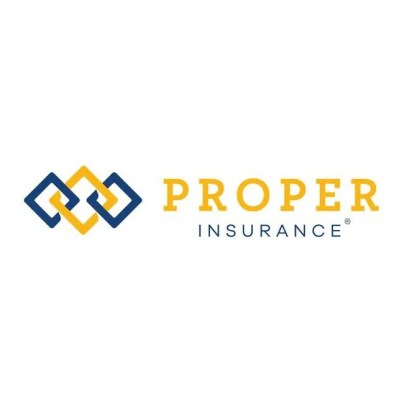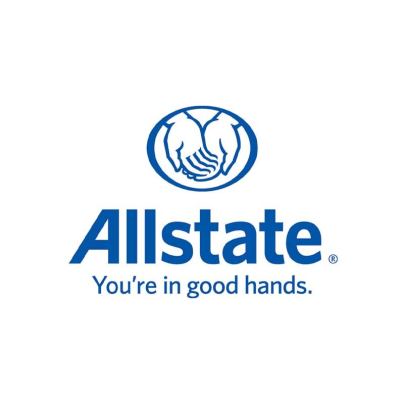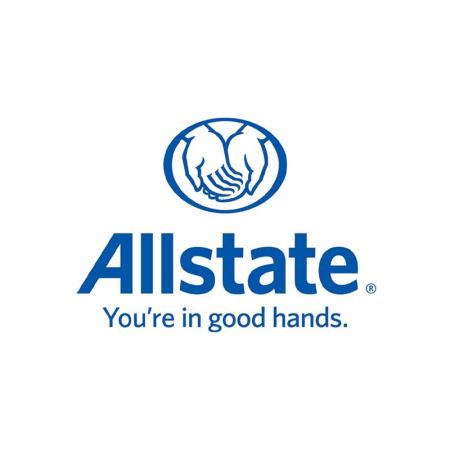
We may earn revenue from the products available on this page and participate in affiliate programs. Learn More ›
Renting out property through short-term rental sites like Airbnb or Vrbo has become very popular in recent years, giving property owners new opportunities to generate revenue through short-term rentals. However, standard homeowners insurance typically does not extend to properties used in this fashion because a short-term rental is considered a business activity. As such, property owners may need to obtain specialized insurance for renting property on a short-term basis. Short-term rental insurance can protect against property damage caused by a guest during their stay. It can also insure belongings that are damaged or stolen by a guest. Liability coverage is typically included as well, protecting property owners from legal liability in the event that a visitor is hurt while staying on the premises.
Although short-term rental insurance may be most appealing to property owners renting out a second home or vacation property through a rental hosting site, it could also be used by landlords who own multiple properties and rent them out on a short-term basis—usually fewer than 30 days—as even the best landlord insurance is unlikely to cover short-term rentals.
A property owner’s status as either a professional landlord or a homeowner earning supplemental income by renting out a second property can determine what exactly they should consider when looking for the best renters insurance covering this type of property. A landlord may seek out more extensive coverage that mirrors landlord insurance policies. Because landlords may rely on rental payments for their primary income, for instance, they may require loss-of-use coverage in the event that a rental property is damaged and cannot be rented out for an extended period of time. A property owner renting out their vacation home during the peak season, on the other hand, may not be dependent on rental income to make ends meet, so they may not need such extensive coverage.
Finding the best short-term rental insurance requires an understanding of both what a company can offer and what a property owner needs. Every short-term rental insurance provider will have strengths and weaknesses to consider, so there isn’t a one-size-fits-all option. With that in mind, it’s important to review the best short-term rental insurance companies available and see what each one brings to the table for property owners.
- BEST OVERALL: Proper Insurance
- BEST ONLINE EXPERIENCE: Safely
- BEST CLAIMS PROCESS: Allstate
- BEST EXTENDED POLICIES: CBIZ
- BEST FOR LANDLORDS: Steadily

What to Consider When Choosing One of the Best Short-Term Rental Insurance Companies
When looking for the best short-term rental insurance, it’s important to match the provider’s capabilities and strengths to one’s circumstances. Some insurance companies specialize in this type of insurance, while others offer it as a rider or endorsement that can be added to an existing homeowners insurance policy. Either approach could be convenient for property owners, depending on whether they want a stand-alone policy or would rather work with their current homeowners insurance provider.
Property owners should consider a provider’s coverage area, as not all insurance companies will offer short-term rental insurance in every part of the country. Coverage amount and policy terms are important factors to weigh as well because they directly affect what an insurance policy will actually cover. Whether a property owner is considering homeowners insurance or landlord insurance, deductibles and premiums will always be significant financial concerns to think about since they impact the total cost of coverage.
Coverage Area
Arguably the first consideration that a property owner should weigh when searching for the best insurance for rental properties is coverage area. After all, if an insurance provider doesn’t offer short-term rental insurance in the property’s location, then property owners won’t be able to use that company’s services, no matter how good they are.
Coverage area can be a tricky subject when it comes to insurance because while some providers may operate across the entire country, they may not offer every form of insurance—including short-term rental insurance—to each state. Even providers that do offer short-term rental insurance in every state may limit its availability to specific ZIP codes. The reason for this is that companies may be hesitant to insure properties located in areas that are at a higher risk for catastrophic events like hurricanes or earthquakes. Excluded areas could include certain coastal regions, which property owners may consider to be the best places for short-term rentals. As such, when reviewing the best insurance companies for rental properties, always be sure to check that the rental property’s exact location is included in each provider’s coverage area.
Insurance Policy Type
Property owners on the hunt for the best short-term rental insurance have two policy types to choose from: stand-alone and add-on policies. Many large providers offer some form of short-term rental insurance as an endorsement to an existing homeowners insurance policy. Obtaining coverage through their current insurance provider could simplify matters for property owners while also opening up potential opportunities to bundle multiple policies together.
On the other hand, there are several insurance providers in this space that offer short-term rental insurance as a stand-alone policy. This setup allows property owners to take a best-in-class approach to their insurance needs, picking the best homeowners insurance for their primary residence and a separate short-term rental insurance policy for their rental property. In many cases, insurance companies that offer short-term rental coverage as a stand-alone policy specialize in this type of insurance, which can lead to extensive policy options, knowledgeable customer support, and streamlined quote and claims processes.
Coverage Amount
When reviewing different short-term rental insurance options, it’s always wise to pay close attention to the coverage amount that’s available—either with a baseline policy or as part of extended coverage terms. A policy’s coverage amount is the maximum payout that a policyholder could receive upon filing a claim. Some providers may offer a set coverage amount for every policy, regardless of their particular details or terms. Others give customers different coverage amounts to choose from, depending on how much insurance they need.
Another factor to consider is whether the coverage amount reflects the total coverage available in a given year or whether it covers each individual rental period. Companies that cover separate rental periods often offer lower coverage amounts, which could mean that policyholders are unable to recoup the full replacement value or repair costs resulting from any losses they suffer in certain situations. For instance, if a guest causes damage to the property that exceeds the per-rental-period coverage amount, the policyholder may only receive the maximum amount listed in their policy, which may be less than the annual coverage amount offered by another insurance provider.
Quote Process
The first step to finding the best rental property insurance company for any property owner is to start gathering quotes. There are a few ways for prospective customers to receive quotes on short-term rental insurance: online, over the phone, or through an agent. That being said, this particular area of the insurance industry can be somewhat limiting in terms of how many options each provider offers. Some may only support online quotes, while others require customers to speak to a representative over the phone. In other cases, site visitors can start a quote online but will need to call a representative to finalize their quote. In-person agent support appears to be somewhat less common in this space compared with other types of insurance—that is, unless a customer chooses to work with a larger insurance provider.
Claims Process
While it may be tempting to choose a short-term rental insurance provider based on financial considerations alone, it’s important to also factor in the claims process when making this decision. Filing a claim can be very stressful, especially if the damage impacts rental operations. Policyholders could be out both the cost of repairs and any time needed to bring the rental space back to its original condition—during which the property cannot be rented out. As such, a streamlined and speedy claims process is ideal. Policyholders may be able to file a claim online, over the phone, via email, or in some cases, through a mobile app or agent. It’s important to consider which approach meets a property owner’s needs; some people may prefer to file a claim completely online, while others may want more hands-on support and guidance speaking directly to an agent.
Additional Policy Endorsements and Add-Ons
Many insurance companies offer standard short-term rental insurance policies that cover common perils such as property damage and fire, in addition to liability coverage in the event that a guest is injured during their stay. In some cases, policyholders may be able to extend coverage via add-on policy endorsements. For instance, property owners may have the option to purchase additional coverage for hot tubs, swimming pools, saunas, ATVs, watercraft, and other amenities available for guests to use during their stay. These kinds of add-on policy endorsements can provide more financial security if a guest is injured or causes damage while using these amenities, as well as offer some much-needed peace of mind for property owners.
Deductibles
Insurance companies don’t shoulder repair or replacement costs on their own. Policyholders typically have a deductible that will need to be paid on any approved claim. Once the policyholder pays the deductible, the provider will then cover the remaining cost to repair damages or replace lost, stolen, or damaged possessions. Some insurance companies may offer a $0 deductible option, which means policyholders won’t be asked to pay anything out of pocket when filing a claim and recouping their losses. There is a trade-off to consider, though: Companies typically charge higher rates on $0 deductible policies, so property owners may pay more up front while potentially saving money later on if they file a claim.
Premiums
Policyholders pay insurance premiums to keep their policy active and to continue receiving insurance coverage. In other words, insurance premiums are the required costs to insure rental properties and their contents. In many cases, policyholders will pay an annual premium to receive coverage, but some providers may offer monthly premiums as an alternative.
Insurance premiums can vary depending on the exact terms selected by a policyholder. A higher coverage amount, for instance, will lead to a higher premium. Extending coverage through add-on policies will also likely raise a policyholder’s insurance premiums. Insurance companies may also charge higher rates for properties located in areas that face a greater risk of covered events such as inclement weather or burglaries.
AM Best Rating
At first glance, a company’s financial standing may not seem like the most important factor to consider when selecting the best short-term rental insurance provider, but keep in mind that insurance is a financial service. Customers should feel confident that their insurance provider has the capital to pay out any filed claims and that the organization is on stable financial footing. AM Best is a respected credit rating agency that specializes in the insurance industry. The company reviews insurance companies and underwriters, closely analyzing their financial strength and creditworthiness to determine their financial health and outlook. AM Best assigns a rating for each company it reviews, ranging from A+ for organizations with “superior” financial standing to D for those with a “poor” financial situation.
Our Top Picks
When reviewing the best insurance companies for rental properties, property owners should look for providers that can offer an expansive coverage area, numerous policy options, a generous coverage amount, and streamlined quote and claims processes, among other factors.
Best Overall
Proper Insurance
- Coverage area: 50 states and Washington, D.C.
- Insurance policy type: Stand-alone
- Coverage amount: $1 million
- Quote process: Phone
- Claims process: Phone
- AM Best rating: A
Pros
- Specialty in short-term rental insurance
- $0 deductible option
- Loss-of-use coverage built into every policy
- Wide selection of add-on policy options available
Cons
- Quotes cannot be fully completed online
Why It Made the Cut: Proper Insurance specializes in short-term rental insurance, tailoring each policy to the needs of policyholders who own these types of rental properties. Proper Insurance’s main area of expertise is short-term rental insurance, so customers can rest easy knowing that any claim they file will be properly handled. As Vrbo’s recommended short-term rental insurance provider, Proper Insurance offers peace of mind that customers are getting the right kind of insurance for their needs. For instance, loss of use is built into every insurance policy, so property owners could receive funds to cover rental payment losses if their property cannot be used for an extended period of time following a covered event. While customers will need to eventually speak to a representative over the phone to finalize a quote, they can provide all the necessary information online first to move things forward and minimize any back-and-forth over the phone. Proper Insurance also offers a wealth of policy options to choose from, including bed bug removal, watercraft coverage, and $0 deductible options. With more opportunities to customize their policy, property owners can tailor their coverage to their exact specifications and get precisely the insurance they need.
Best Online Experience
Safely
- Coverage area: 50 states and Washington, D.C.
- Insurance policy type: Stand-alone
- Coverage amount: Up to $1 million
- Quote process: Online, phone
- Claims process: Online
- AM Best rating: Unknown
Pros
- Specialty in short-term rental insurance and guest screening
- $0 deductible option
- Convenient, user-friendly online quote process
- User-friendly online customer portal to conveniently manage claims
- Option to conduct guest background checks upon booking
Cons
- Short-term rental insurance may not be available in every ZIP code serviced by Safely
- Weather-related damage not covered
- Unknown AM Best rating
Why It Made the Cut: Safely Insurance provides an intuitive and user-friendly online experience from quote to claims, along with a wholly unique guest-screening service. With a heavy focus on online tools and support, Safely Insurance stands out with its ability to meet customer needs via digital platforms. That support begins with a streamlined-yet-detailed online quote process that allows customers to customize their quote with various deductibles, policy add-ons, and policy options. Although Safely’s AM Best rating is unknown, the company focuses specifically on short-term rental insurance, so this type of insurance is a core competency and area of expertise for the provider. While weather-related perils are not included in Safely’s short-term rental coverage, the company does offer guest-screening services with every policy, which may offer added peace of mind for property owners renting out their property to a wide variety of guests and visitors. Safely can even conduct background checks before a reservation is completed to determine if a guest is a potential risk to cause property damage, steal possessions, or commit a crime, providing an even greater sense of security. Safely may not always serve every ZIP code in its coverage area, but eligible customers will be able to conveniently file and manage insurance claims directly through a dedicated online portal. In addition, Safely offers $0 deductible options, so policyholders can set up the terms of their policy to best meet their financial needs.
Best Claims Process
Allstate
- Coverage area: Varies by state
- Insurance policy type: Endorsement
- Coverage amount: $10,000 per rental period
- Quote process: Phone, agent
- Claims process: Online, app, phone, agent
- AM Best rating: A+
Pros
- Convenient claims process via mobile app
- Potential to avoid rate increases following a claim
- A+ AM Best rating
Cons
- Short-term rental insurance may not be available in all states serviced by Allstate
- Short-term rental coverage unavailable as a stand-alone policy
Why It Made the Cut: Allstate is a great option for property owners who prioritize a convenient claims process and strong financial stability in a short-term rental insurance provider. As one of the largest insurance companies in the nation, Allstate has many resources at its disposal, which can directly benefit its customers. For instance, the company has a dedicated mobile app that allows customers to manage different aspects of their short-term rental insurance policy, including filing and tracking claims so they can easily see the status of a claim at any time. Allstate also has a large presence across the country, and while it doesn’t provide short-term rental insurance to every state in its service area, customers may feel a greater sense of financial security knowing that the company has an A+ rating from AM Best—the highest rating possible. The company offers short-term rental insurance as an endorsement rather than a stand-alone policy. This may be more convenient for existing Allstate customers or property owners looking to change their homeowners insurance provider, since they can handle all of their insurance needs with a single provider. Policyholders could also benefit financially from Allstate’s ClaimGuard feature. With ClaimGuard, customers who file no more than one claim within a 5-year period will not experience a rate increase, so they may be able to keep their premiums down.
Best Extended Policies
CBIZ
- Coverage area: 50 states and Washington, D.C.
- Insurance policy type: Stand-alone
- Coverage amount: $1 million
- Quote process: Online
- Claims process: Phone, email
- AM Best rating: A+
Pros
- Thorough and customizable online quote process
- Extremely wide selection of add-on policy options available
- Extensive separate-structure coverage available
- A+ AM Best rating
Cons
- Short-term rental insurance may not be available in all ZIP codes serviced by CBIZ
- Quotes cannot be completed over the phone
- Somewhat unresponsive customer support
Why It Made the Cut: CBIZ offers plenty of additional policy options to choose from, making it a top choice for property owners who want more than basic coverage with their short-term rental insurance. CBIZ has a long-standing history providing short-term rental insurance to property owners, but what really makes the company stand out is the sheer number of add-on policy options that customers can use to extend their coverage according to whatever insurance needs they have. Additional policies can cover a wide variety of amenities that property owners may use to entertain guests, including trampolines, ATVs, and even ziplines. It’s worth noting that while short-term rental insurance may not be available through CBIZ in all ZIP codes, the company’s coverage area includes all 50 states and Washington, D.C. The company’s customer support can be somewhat unresponsive at times, but CBIZ has a sterling financial reputation, which is reflected by its A+ rating from AM Best, so customers can feel confident in the company’s ability to continue providing insurance and paying out claims. Although customers are not able to receive a quote over the phone, if they go to the CBIZ website, they will find a highly customizable online quote process that allows them to craft their quote and policy around their exact specifications. This way, they can get the right amount and right type of insurance to meet all of their needs as property owners renting out their property on a short-term basis. During the quote process, policyholders can also choose to expand coverage to cover every structure on the property, including gazebos, barns, and detached garages, so coverage isn’t limited to the main residence alone.
Best for Landlords
Steadily
- Coverage area: 50 states and Washington, D.C.
- Insurance policy type: Endorsement
- Coverage amount: $1 million
- Quote process: Online, phone
- Claims process: Phone, email
- AM Best rating: A
Pros
- Real-time policy updates sent via text
- Wide selection of add-on policies available
- Manufactured home coverage available
- Extensive online library of education materials for landlords
Cons
- Short-term rental insurance may not be available in all ZIP codes serviced by Steadily
- Short-term rental insurance unavailable as a stand-alone policy
- Somewhat high deductibles for short-term rental coverage
Why It Made the Cut: Steadily offers a wide variety of policy terms to choose from, including manufactured home coverage, as well as various tools and services designed to help property owners. Steadily provides extended coverage options that go beyond common covered perils such as fire or property damage, so customers can choose to purchase enough insurance to cover even extreme situations such as civil unrest or a volcanic eruption. Property owners who rent out a wide variety of property types may be glad to hear that Steadily insurance can cover manufactured homes and other dwellings. Because short-term rental insurance is an endorsement that can be added to the company’s landlord insurance policies, Steadily may be an appealing option for landlords who want to extend their coverage to include short-term rentals without needing to purchase a stand-alone policy. Although customers could end up paying a higher deductible with Steadily in the event of a claim, they may receive lower monthly or annual insurance rates in return. For property owners who don’t expect to file many claims, that trade-off could work to their advantage. While short-term rental insurance may not be available in every ZIP code across Steadily’s coverage area, the company offers experiential benefits that could assist busy property owners. For instance, customers can receive real-time updates on the status of outstanding claims via text. The company also assigns a designated agent to each customer so they can reach out whenever they need assistance and receive dedicated expert support. Another perk is the wealth of online materials, including market analysis, real estate trends, and professional advice, designed to inform landlords and help them better manage the day-to-day responsibilities of their work.
Our Verdict
We chose Proper Insurance as our Best Overall choice because of its specialized short-term rental insurance coverage and numerous policy options for customers to select. Safely gets the nod for Best Online Experience on account of its easy-to-use digital platforms, including an online quote tool and customer portal as well as its unique guest- screening services.
How We Chose the Best Short-Term Rental Insurance Companies
Short-term rental insurance is a fairly niche form of insurance, and it’s important to weigh the factors that can really impact coverage for property owners. To that end, we considered what kinds of terms and coverage were available—either as a basic policy or as an endorsement—that would better support the unique needs of rental property owners. Coverage area is important as well, as some companies may provide short-term rental insurance across their entire service area, while others may limit availability to certain ZIP codes or states—areas that could possibly be popular destinations for vacation or short-term rentals.
As with any type of insurance, the quote and claims processes can have a major effect on the overall customer experience, so those aspects were considered as well. Because financial standing and creditworthiness are key factors to include when assessing any insurance company, each provider’s AM Best rating came into play during the decision-making process.
Before You Choose One of the Best Short-Term Rental Insurance Companies
Property owners are not legally required to obtain short-term rental insurance when renting out their vacation houses or second homes via hosting sites. It’s up to each owner to determine how much risk they’re willing to take on in the event that a visitor is hurt on the premises or that the property itself is damaged by a guest during their stay.
Hosting sites such as Airbnb may also offer their own liability protection, which could provide enough coverage for some property owners. Keep in mind, though, that policy terms will likely vary depending on the site, and they may not offer all the coverage needed to fully insure the property or its contents against every event or peril the property owner would like to see coverage for. As such, property owners may want to seek out the best insurance company for rental property to receive all the coverage they need.
Another caveat to consider is that homeowners insurance providers may extend coverage to this type of rental on a one-time basis. Not all companies will make this exception, and even if they do, it could be limited to rare occasions such as a sporting event or festival that wouldn’t normally come through town—for instance, a local arena hosting a championship game. Insurance companies may also require advance notice before granting extended coverage—if they choose to do so at all.
Cost of Buying a Policy With One of the Best Short-Term Rental Insurance Companies
As with homeowners, rental, or landlord insurance, short-term rental insurance costs can vary depending on numerous criteria that can change from property to property. The Insurance Information Institute notes that amenities such as hot tubs or swimming pools located on the rental property could impact vacation home insurance rates. Any feature that could be considered a safety hazard may lead to higher insurance costs. For instance, visitors could slip while getting out of a hot tub or hit their head diving into a pool. Such risks often lead to higher insurance rates for property owners. That being said, property owners may be able to reduce their insurance costs by installing safety features designed to minimize risk, such as security systems, sprinklers, and fire alarms.
Rental agreement terms could affect short-term rental insurance costs as well. Allowing guests to bring their pets could make a rental property more appealing, but it could also result in higher insurance rates because those pets may damage the property or its contents.
The Advantages of Choosing One of the Best Short-Term Rental Insurance Companies
Renting out a house or condo to complete strangers on a short-term basis comes with many potential risks, and it’s fair for property owners to worry about how they will pay for any damages caused by their guests. Significant property damage could require lengthy repairs, resulting in lost revenue if the property cannot be rented out until it’s brought back to its original condition.
Short-term rental insurance can help protect against financial setbacks that may result from an unruly guest or a force of nature. The best short-term rental insurance can offer a variety of benefits to help property owners get back on their feet if the worst comes to pass:
- Short-term rental insurance may cover loss of use, so policyholders can receive a payout if they are unable to rent out their property after a covered event.
- Many insurance companies in this space offer numerous policy add-ons that allow customers to shape their insurance policy to their exact needs.
- Customers may be able to select from different deductibles and premiums that can help them find the right policy at a comfortable price point.
FAQs
Managing a short-term rental property and finding the best rental insurance can be daunting for anyone who is unfamiliar with this type of coverage. Even property owners who have rented out one or more units for short periods of time may not know exactly how to choose the best short-term rental insurance for their needs. Knowing what to look for in a short-term rental policy can help clear up any confusion.
Q. Which short-term rental site is the best?
Every hosting site offers features that will appeal to different property owners, so it’s difficult to conclusively pick the best short-term rental sites for hosts in every situation. That being said, when looking for the best rental listing sites, property owners should consider the cost to list a property and the site’s usability, application and screening tools, and listing categories, among other factors.
Q. Are there any disadvantages to having multiple short-term vacation rentals?
Property owners should be aware of the time and energy required to manage a single short-term vacation rental, let alone multiple rental properties. Beyond managing and cleaning the properties themselves, it can be quite taxing ensuring that every stay meets renters’ expectations and encourages them to leave a positive review.
Q. What is short-term property management?
Short-term property management companies take on much of the work that comes with renting out vacation properties, such as coordinating with rental sites, booking stays, scheduling cleaning services, responding to reviews or complaints, and ensuring payments are received. These services come at a cost, but the convenience of working with the best property management companies may be worth the expense—especially for inexperienced property owners.
Q. How risky are short-term rentals?
Short-term rentals present some risks and disadvantages due to the quick turnover rate. Property owners may incur higher maintenance costs compared with a traditional rental investment because the property will need to be cleaned and checked for necessary repairs after every stay. Seasonality can also be a potential issue if the property only garners interest during certain times of the year. A lake house that can only be rented out during the summer probably won’t generate as much revenue as a house that can be rented out all year long to a single tenant.
Q. Why do people rent short term?
People rent short term when they want a place to stay for a small period of time, which may be just a couple of days or as long as a week or two. Often, people will seek out short-term rentals when they’re on vacation and want to stay in a highly coveted location—like a city center or beachfront—without paying a premium for a hotel in that area. Visitors may also prefer short-term rentals because they can often offer amenities typically found in a home, such as kitchens, multiple bedrooms, spaces for entertaining, and private outdoor areas.
Q: Which lease is for a short-term period?
Short-term rentals require short-term rental agreements to set terms and conditions between the property owner, the renter, and any third parties such as a rental site or property management company. Rental sites will often provide a short-term rental agreement covering common considerations and terms, but property owners could also choose to tailor a rental agreement or contract to their own specifications.
Q. Will homeowners insurance cover short-term rentals?
Renting out property—even if it’s someone’s second home or vacation house—is considered a business activity. As such, homeowners insurance is unlikely to cover short-term rentals. According to the Insurance Information Institute, insurance companies may offer a one-time exception on short-term home rentals, but policyholders will need to speak with their agent to see if they qualify.
Q. Will landlord insurance cover short term rental properties?
Landlord insurance and homeowners insurance may offer very different types of coverage, but this is one similarity they share—again, due to short-term rentals being considered a business activity. Even the best landlord insurance companies are unlikely to cover short-term rental properties without a separate policy or rider.







